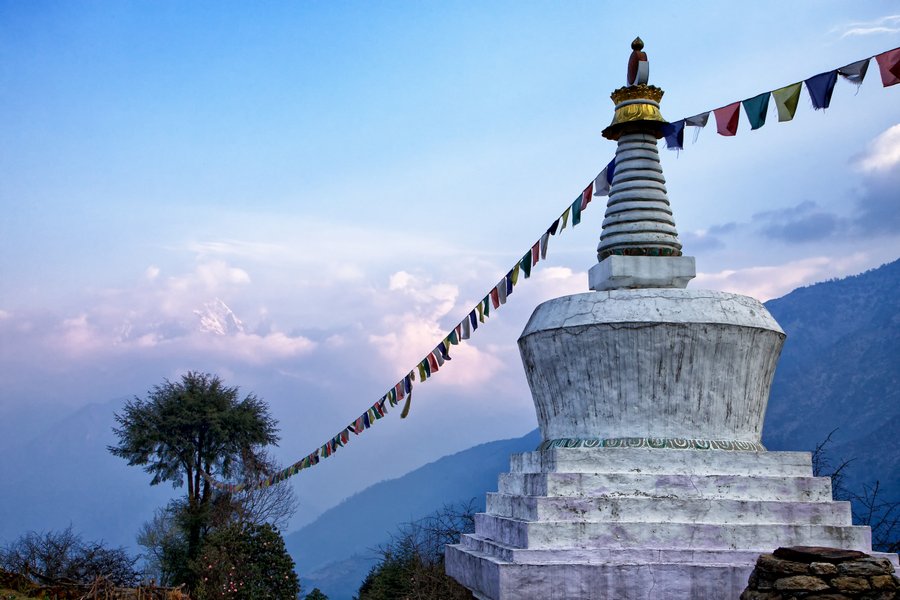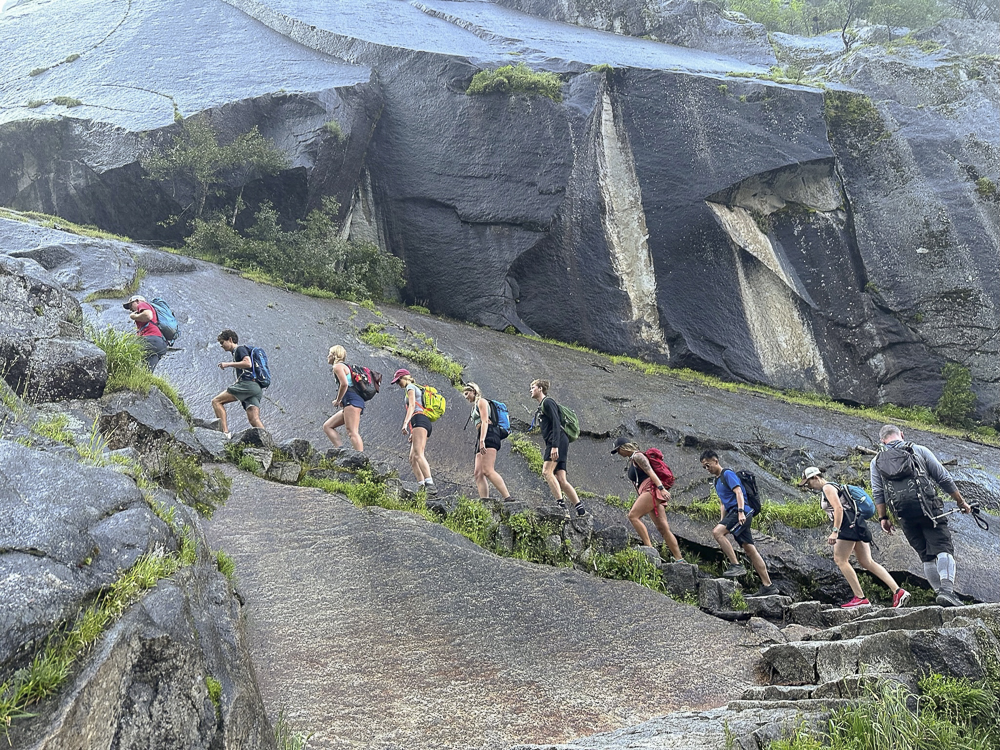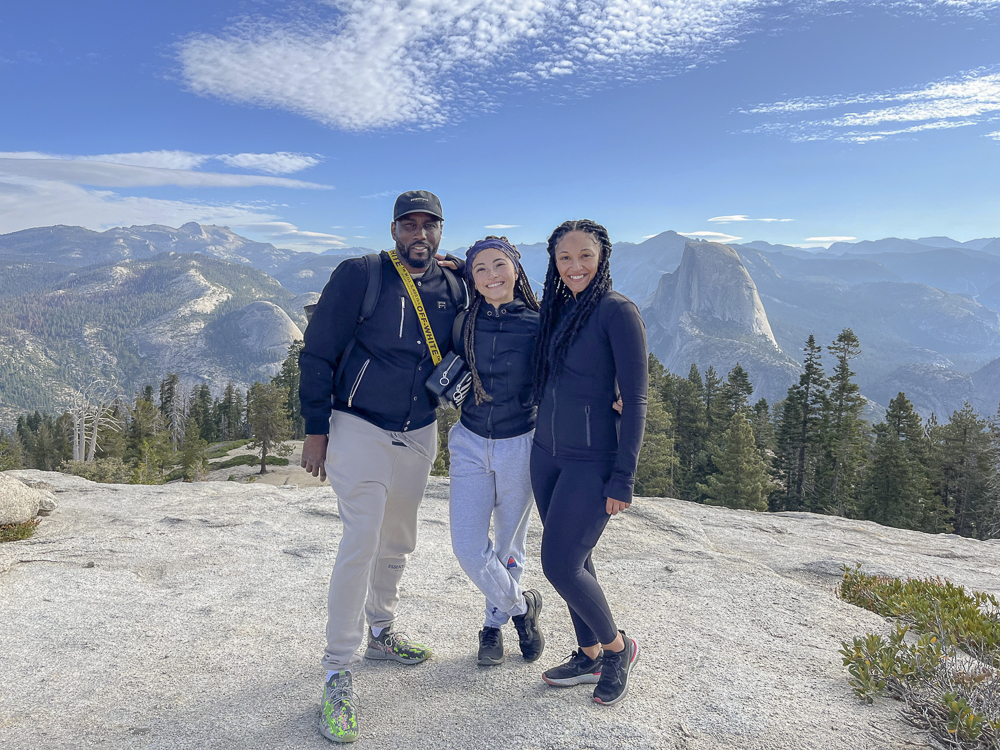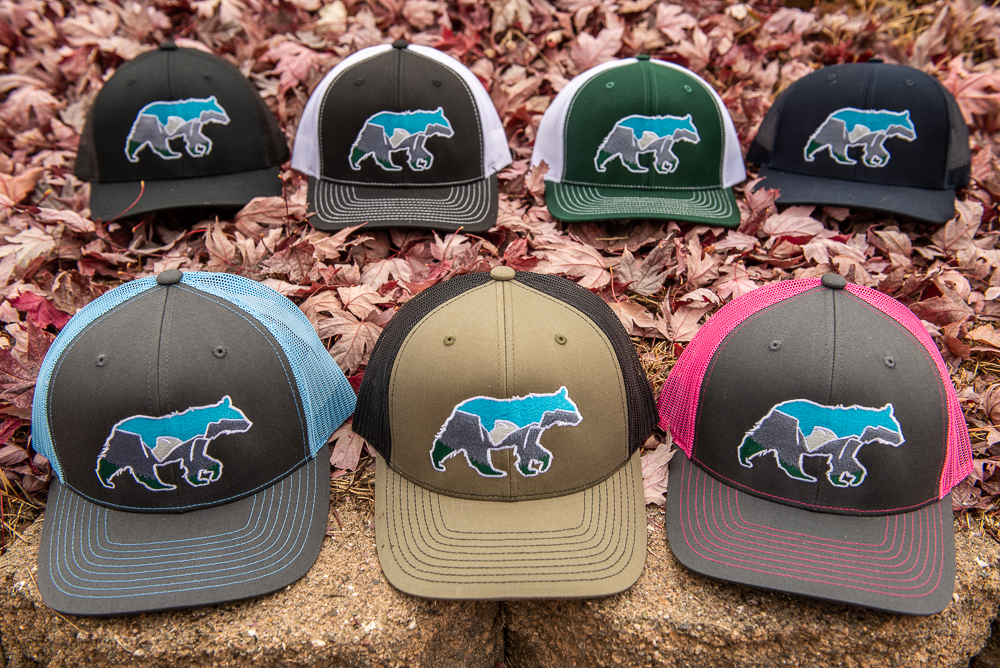Everest Base Camp Mailbag

This week’s question for Glen Young comes from a pair of experienced trekkers who want to know if age is a factor for completing our Mt. Everest Base Camp Trek September 19 – October 10, 2015.
Q: “VERY interested in the Everest Base Camp Trek. Have been hiking for 10 years. OUR biggest hike was doing RIM to RIM Grand Canyon US. We are respectively age 55 and 75, VERY fit, but was wondering if this is TOO old to try this. Any feedback on ages of people who have done the hike and more fitness examples would be GREAT.”
A (Glen Young):
Thank you so much for getting in touch with us about the Mt. Everest Base Camp Trek! Fifty-five and seventy-five is not too old to do the trek, and I have worked with people of similar age in the mountains of Nepal who have had a wonderful time. There have been older individuals who have gone to higher elevations, including summiting Mt. Everest itself (Yuichiro Miura was eighty when he summited Everest). And from the sound of it you are both very fit and motivated. Still, there are a few things that are important to think about in order to ensure your comfort and safety.
High elevation increases your heart-rate, even when at rest. This will make it feel as if you are jogging even when you walk slowly.
Your blood will be thicker due to an increase in red blood cells and increased urination (a side-effect of altitude exposure).
Dehydration is common and sometimes unavoidable due to vapor loss into a low-pressure environment, and due to diarrhea/nausea caused by exposure to new bacteria in Nepal.
The result: Your heart will work much harder than at sea level, even when you are sleeping. This can lead to feeling fatigued, and if you have a history of heart disease, can be potentially dangerous.
It’s a good idea to do some research of your own, and consult a doctor who has expertise in high elevation medicine. Keep in mind that traveling to almost 18,000 ft. is different than traveling to 12,000 ft., so ideally the doctor you choose will have an understanding of the stress that very high elevations such as this can produce.
Having said that, if you are able to engage in low-level aerobic exercise for two continuous hours at a time, can carry a 25 lb. pack over uneven ground uphill and downhill, have no history of heart disease, and have been given the go-ahead by your doctor, we would be thrilled to have you on the trek. Some of my favorite clients have been over the age of seventy.
Here is an article with some information on the effects of high elevation on the heart:
http://www.expeditionmedicine.co.uk/index.php/advice/resource/r-0034.html
Glen Young is our lead international guide and the leader for our Mt. Everest Base Camp Trek. In recent years, much of Glen’s travel has been to lead international mountaineering expeditions for his own company, Direct Experience International. In Nepal, Glen has led expeditions of Imja Tse (Island Peak), Pachermo, Labuche East, AmaDablam, and Naya Kanga. He has also guided treks in the Annapurna, Langtang, and Everest Regions of Nepal- including having guided the Everest Base Camp trek twice. Glen is excited to share his appreciation of the local people and culture, his fascination with landscape, his knowledge of natural and cultural history, and his ready sense of humor with participants on our Everest Base Camp trek. The route we follow to Everest Base Camp is well known to Glen. He has not only guided many high elevation treks in Nepal, including this one, but has also guided many of the spectacular peaks we will see along our journey. His knowledge of the natural and cultural history of Nepal, expertise in high altitude travel, and friendship with the Nepali People make him one of the most sought-after guides in the region. Glen’s commitment to the people of Nepal is best evidenced by his involvement with Karma Project, a nonprofit he founded with his friend Karma Geljen Sherpa for the purpose of funding education and medical services in the Everest Region. We’re certain you will appreciate Glen’s kind heart, professional attention to detail, and passion for the Himalayas as much as we do.
Here you get to the second part of the interview or follow us on a nice hike on Mt. Whitney.
If you are interested in booking a global tour with us, have a look here.



